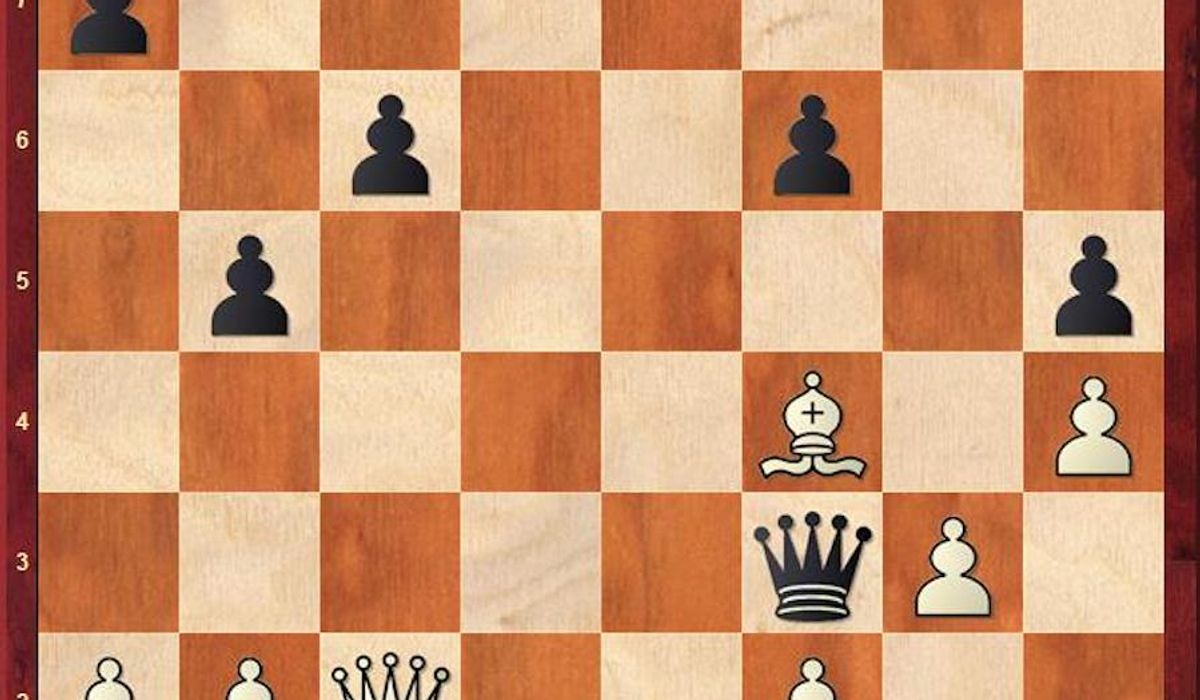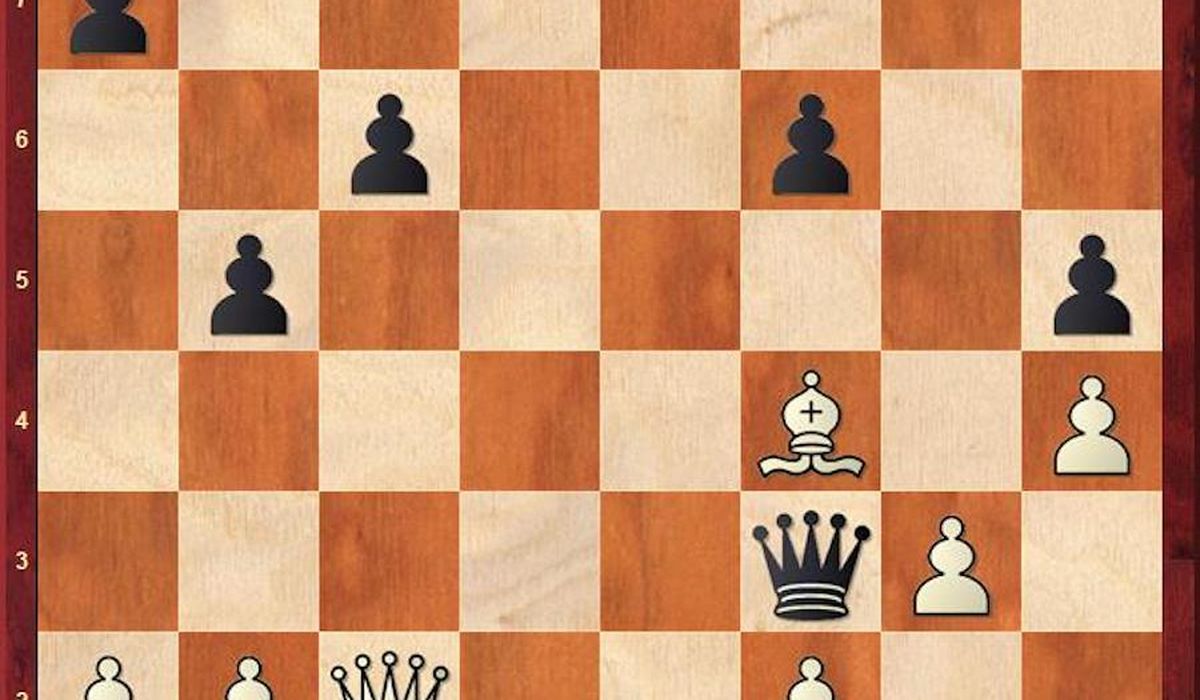
A cradle of chess may be celebrating a new birth.
Having learned the game from India centuries before the game caught on in the West, the Persians and the Arabs could be considered the first great chess dynasties. Iran contributed the game’s touchstone phrase, “Shah mat” (checkmate) to English and virtually every other European language. The first recorded game of chess in history was played between a Baghdad historian and his student in the 10th century.
And Middle Eastern chess analysts composed some of the game’s first chess problems, with motifs such as forks, pins and waiting moves still valid today.
Chess dominance moved on, however, with the emergence of the modern game — first to Renaissance Italy and Spain, then to France in the 18th century, Britain and Germany in the 19th century, the Soviet Union in the 20th century and now perhaps China and the U.S. in the 21st century.
But the rise of Iranian-born super-GM Alireza Firouzja, even though he now plays for France, may be a small sign the wheel is about to turn again. With his win last week at the FIDE Grand Swiss Tournament in Latvia, the rising superstar earned a spot in next year’s world championship candidates tournament and confirmed many projections that he may one day contend for the world crown.
Iraq’s rebuilding national chess program now ranks 85th in the FIDE global pecking order, and there was some fine play in the country’s 2021 national title tournament in Baghdad, won by FM Abdulsattar Abdulwahhab Ahmed earlier this month. FM Akar Ali Salih Salih appeared to be channeling some of those old Arab chess problems in the witty way he hunted down the queen of expert Sabah Nori Rabeea in their game from the event.
White takes a solid but unambitious approach in this Queen’s Pawn Game, then gives up both his one strong point and the initiative to Black after 13. Nb3 Qc7 14. Nxc5?! (if nothing else, Rabeea had total control of the d4-square, but this throws it away; after 14. Nfd4 d5 15. Bf3 Ne4 16. Qe2, White is still OK) bxc5 15. Nd2 d5. With more space and two good bishops, Ali Salih is already better.
The fun begins when White’s queen finds herself caught in a web where struggling to get out only makes things worse: 17. Nb3?! (closing what turns out to be a critical escape route, but 17. Qxa7?? Ra8 already show the perils awaiting the White queen) Rd6! 18. Bg4?! (again, White should hightail it with 18. Qf4 while he has the chance) Ra6 19. Qb5 (Qd7 Qb6 20. Ra1 Rd8) e6! — blocking the bishop’s attack on the rook while clearing e7 for the bishop.
It’s over on 20. Rc2? (now there’s no turning back, but on 20. Qe2 Rxa2 21. Ra1 Rxa1 22. Rxa1 Qb6 23. Nd2 a5, Black is a pawn up and holds all the positional trumps) c4!, and one can almost hear the cell door clanging shut.
Even tactical tricks can’t save Her Majesty here: 21. Nd4 Ra5 22. Qb4 (Nxe6 Rxb5 23. Nxc7 Rxc7 wins a piece) Be7 23. Nb5 Qd8! 24. Nd6 Bxd6 25. Qxb7 Rb8! (trapping the queen once again) 26. Qc6 Rb6, and White played 27. Qb7 before resigning a hopeless fight.
—-
Firouzja attracted early notice with games like today’s second offering, a tough win over German GM Matthias Bluebaum from the 2017 Aeroflot Open in Moscow. The tactics in this Caro-Kann Advanced are fiendishly complex, but you never get the sense Firouzja is in over his head.
After 21. Qxb4 Na6 22. Qd2 Rae8, White is down the exchange for a pawn, but keeps playing to open lines for the attack with 23. Nc3 Nc7 24. d5! Nxd5 25. Nxd5 Qxd5 26. Qc2. The pressure to defend finally gets to Black, opening the way to a neat combination.
Thus: 26…Kc8 27. Rd1 Qf3? (see diagram; this turns out to be a bad square for the queen, whereas a draw would have been a just result after 27…Qe4 28. Qc5 Qxf4 29. Qxc6+ Qc7 30. Qa8+ Qb8 31. Qc6+ Qc7 32. Qa8+, with perpetual check) 28. Qf5+! Kb7 29. Rd7+ Ka8 (Kb6 30. Bc7+) 30. Rxa7+! Kxa7 31. Bb8+ Kxb8 32. Qxf3. White’s material edge is slight, but his queen proves vastly superior to Bluebaum’s rooks and loose pawns.
The helplessness of a rook against connected passed pawns is demonstrated yet again in the game’s finale, after 38. h6 f5 39. gxf5! (Qxf5?! Rxh6 40. Kg2 Rhh7 would be a much harder slog) Rxg6+ 40. fxg6 Re6 41. g7 Rg6+ 42. Kf1 and the White pawns can’t be stopped; Black resigned.
Rabeea-Ali Salih, Iraq National Championship, Baghdad, October 2021
1. d4 Nf6 2. Nf3 c5 3. dxc5 Na6 4. Bf4 Nxc5 5. e3 g6 6. c3 Bg7 7. Nbd2 O-O 8. Be2 d6 9. O-O b6 10. Rc1 Bb7 11. Bg5 Rc8 12. Bxf6 Bxf6 13. Nb3 Qc7 14. Nxc5 bxc5 15. Nd2 d5 16. Qa4 Rfd8 17. Nb3 Rd6 18. Bg4 Ra6 19. Qb5 e6 20. Rc2 c4 21. Nd4 Ra5 22. Qb4 Be7 23. Nb5 Qd8 24. Nd6 Bxd6 25. Qxb7 Rb8 26. Qc6 Rb6 27. Qb7 and White resigns.
Firouzja-Bluebaum, Aeroflot Open, Moscow, February 2017
1. e4 c6 2. d4 d5 3. e5 Bf5 4. Nf3 e6 5. c3 Ne7 6. Be2 Ng6 7. h4 h5 8. Ng5 f6 9. exf6 gxf6 10. Nh3 Kd7 11. Nf4 Nxf4 12. Bxf4 Qe8 13. c4 dxc4 14. Bxc4 Qg6 15. Qb3 b5 16. O-O Rg8 17. g3 Qg4 18. Re1 Bb4 19. Bxe6+ Bxe6 20. Rxe6 Qxe6 21. Qxb4 Na6 22. Qd2 Rae8 23. Nc3 Nc7 24. d5 Nxd5 25. Nxd5 Qxd5 26. Qc2 Kc8 27. Rd1 Qf3 28. Qf5+ Kb7 29. Rd7+ Ka8 30. Rxa7+ Kxa7 31. Bb8+ Kxb8 32. Qxf3 Re6 33. Qxh5 Rge8 34. Qf7 R8e7 35. Qg6 Kb7 36. h5 Kb6 37. g4 c5 38. h6 f5 39. gxf5 Rxg6+ 40. fxg6 Re6 41. g7 Rg6+ 42. Kf1 Black resigns.
• David R. Sands can be reached at 202/636-3178 or by email at dsands@washingtontimes.com.








